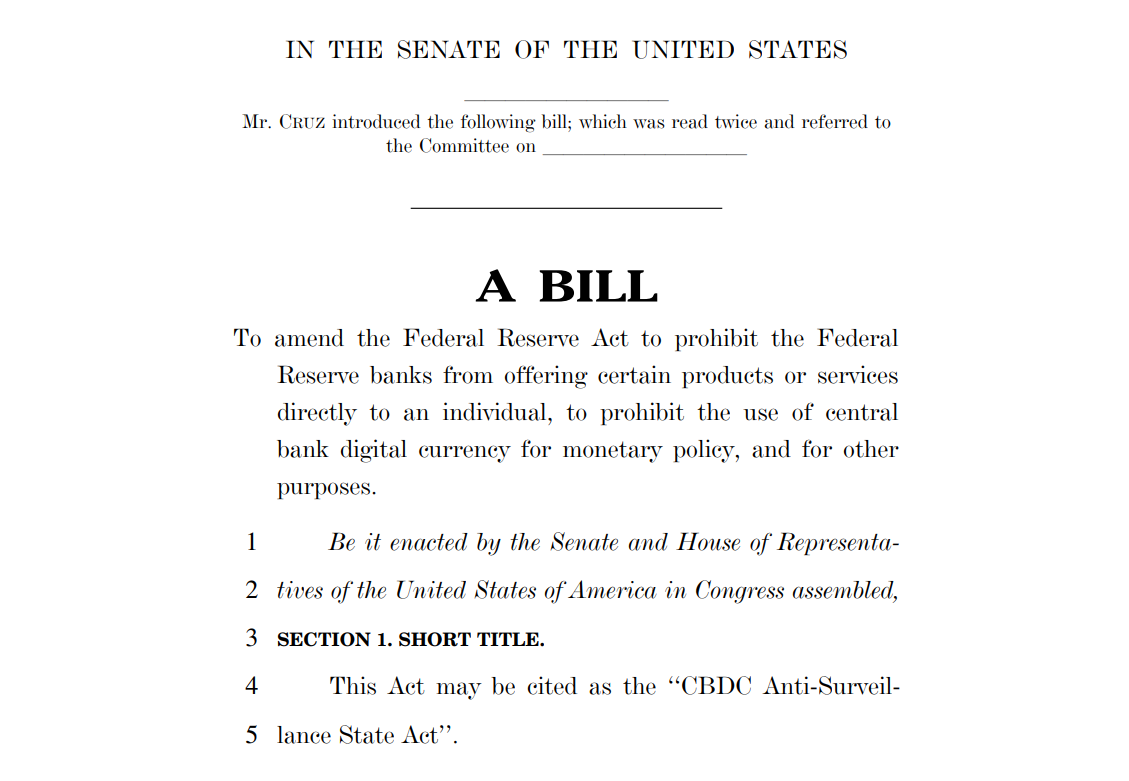Five US senators have jointly signed a bill demanding the prohibition of central bank digital currencies (CBDC), deciding to act together to counter the Biden administration’s plans to introduce a digital dollar. On February 26th, US Senator Ted Cruz, along with Senators Bill Hagerty, Rick Scott, Ted Budd, and Mike Braun, introduced the Anti-Surveillance State CBDC Act, challenging the Federal Reserve’s authority to implement a CBDC.
Notable Step Against CBDC in the US
The senators are concerned that the Biden administration’s CBDC project could track citizens’ transaction movements and be programmed to violate freedoms. Senator Cruz has asked Congress to declare that the Federal Reserve does not have the authority to implement a CBDC. The bill specifically prohibits the Federal Reserve from offering certain products or services directly to an individual, using the central bank digital currency for monetary policy, and other purposes that are contrary to its authority.

Senators Scott and Budd emphasized the need to protect the financial privacy of US citizens. Budd stated in his remarks:
“A CBDC, would open the door for the federal government to surveil and control all Americans’ spending habits. Any initiative to establish a CBDC must be confronted and stopped; that’s why I’m proud to join Senator Cruz’s efforts in this direction.”
Debate Continues Over CBDC
In Cruz’s legislative proposal announcement, a CBDC is described as programmable money under government control that can collect intimate personal information about citizens and track and freeze funds for any reason. If the law is signed, it will also require an authorization act from Congress for any future CBDC issuance. This will prevent the Federal Reserve from transforming into an individual banking institution.
In addition to the support of the five senators, the legislation is also backed by five associations: Heritage Action for America (HAFA), Blockchain Association, American Bankers Association (ABA), Independent Community Bankers Association (ICBA), and Club for Growth (CFG).
On the other end of the spectrum, former President Donald Trump, who is running for the presidential election in November 2024, has promised never to allow the formation of an in-house CBDC. Trump thanked Vivek Ramaswamy for drawing attention to the negative impacts of CBDC projects.










